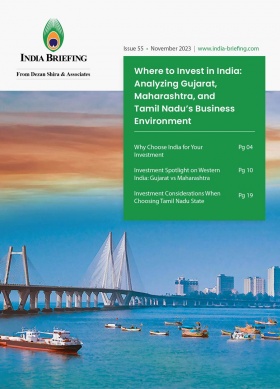India, EFTA Sign TEPA Deal: Key Benefits Negotiated
India has tied in investment obligations to the tariff concessions provided in the Trade and Economic Partnership Agreement (TEPA) between India and the EFTA. New Delhi has negotiated tariff reductions on several tariff lines, barring sensitive goods like dairy, soya, coal, and certain agricultural products. Besides technology transfers, the government anticipates US$100 billion in investments from EFTA nations, which could create 1 million direct jobs in India, over the next 15 years.
India has finally signed a trade deal with a Western bloc – the European Free Trade Association (EFTA), which comprises of Iceland, Norway, Lichtenstein, and Switzerland. The EFTA countries are not members of the European Union (EU), and this deal could serve as a blueprint for India’s ongoing trade treaty negotiations with the EU and the UK.
Officially called the Trade and Economic Partnership Agreement (TEPA), the deal has been 16 years in the making as negotiations began January 2008. Nevertheless, as with all trade deals, timing is key to progress as circumstances – whether economic, industrial, trade, geopolitical, or a combination of these – align to provide the necessary momentum, as was witnessed last year.
Prime Minister Narendra Modi’s government has prioritized expanding India’s trade treaty network, but New Delhi has also dug its heels to preserve a balance of interests – market access and professional mobility, high-tech collaboration, and investment promotion.
Strategically, India is now pursuing trade talks with Gulf partners and developed Western regions. This comes as India wants better access to their markets as export-oriented manufacturing gets a homegrown push. Linked to that goal is the ambition to be better integrated within global supply chains, for which trade treaty alliances are useful.
India’s ongoing free trade negotiations are with the EU, UK, US, Canada, Australia, Oman, Qatar, Mauritius, among others. Modi’s government had wanted to sign one or more trade deals before going into elections in April-May. All partners to the EFTA deal would have understood that a delay now could mean more prolonged or stop-start discussions.
India’s current trade exposure to EFTA countries
Despite the EFTA region representing a mere 0.4 percent of India’s total exports, imports from the four member countries account for 2.4 percent of India’s import share, albeit a decrease from the previous year’s 5.5 percent.
Indian negotiators have thus proceeded cautiously, mindful that tariff eliminations could widen its trade deficit with the EFTA.
Switzerland is India’s primary trading partner within the quartet of EFTA nations. From January to December 2023, India’s imports from Switzerland reached nearly US$14 billion, while its exports totaled US$877 million, resulting in a deficit exceeding US$13.1 billion.
The largest imported commodity from Switzerland is gold, amounting to approximately US$13 billion, much of which is utilized in the production of jewelry for international markets via India.
Key Indian exports to EFTA nations include chemicals, semi-precious stones, ships, boats, pharmaceuticals, and electronic instruments.
Key benefits of the India-EFTA deal
Investment obligations
Under TEPA, India will have the option to revoke tariff concessions granted to EFTA nations if they fail to meet a US$100 billion foreign direct investment (FDI) commitment. However, India can only exercise this option after 18 years, following a three-stage consultation process and a grace period. Also, this does not include foreign portfolio investments (FPI).
TEPA mandates EFTA to fulfill a US$50 billion investment obligation within the initial 10 years and an additional US$50 billion over the subsequent five years. The EFTA bloc is granted a three-year grace period to fulfill its investment commitments under TEPA. India hopes that these investments will create one million in direct employment.
TEPA includes provisions for a dedicated sub-committee to regularly review investment progress, convening biennially and potentially involving various stakeholders.
Trade offers and tariff reductions
The finalized India-EFTA deal is expected to grant Indian animal products, fish, processed foods, and vegetable oils duty-free access to EFTA markets. Any widening of the merchandise gap would necessitate compensatory measures through enhanced access to EFTA’s service market.
While major tariff reductions for goods are not stipulated by the EFTA due to their already low tariffs, India will significantly reduce tariffs over a 10-year period.
Sensitive items like dairy, soya, coal, and certain agricultural products are, however, excluded. Further, concerns surrounding Production-Linked Incentive (PLI) in sectors such as pharmaceuticals, medical devices, and processed foods have been considered in India’s offers.
India will have implemented all agreed duty concessions before the 15-year investment commitment window for EFTA.
Tariff concessions under the India-EFTA TEPA
EFTA is proposing to eliminate tariffs on 92.2 percent of its tariff lines, covering 99.6 percent of India’s exports. The offer includes full market access for non-agricultural products and tariff concessions on Processed Agricultural Products (PAP).
India, in return, is offering to eliminate tariffs on 82.7 percent of its tariff lines, covering 95.3 percent of EFTA exports, with over 80 percent of these imports comprising of gold and remaining unaffected by the duty changes.
Excluded from tariff reduction are sectors like dairy, soya, coal, and certain sensitive agricultural products.
India has proposed tariff concessions on 105 sub-sectors to EFTA and has received commitments on 128 sub-sectors from Switzerland, 114 from Norway, 107 from Liechtenstein, and 110 from Iceland.
Prospects for services sector and professional mobility
TEPA is poised to boost India’s services exports, particularly in sectors where India is strong or holds substantial interest, such as IT services, business services, personal, cultural, sporting, and recreational services, as well as other education and audio-visual services.
EFTA is offering enhanced access through digital delivery of services (Mode 1), establishment of commercial presence (Mode 3), and strengthened commitments and clarity regarding the entry and temporary stay of essential personnel (Mode 4).
TEPA includes provisions for Mutual Recognition Agreements in Professional Services, including fields like nursing, chartered accountancy, and architecture, fostering smoother recognition processes for professionals.
Intellectual property
The Intellectual Property Rights (IPR) commitments within TEPA are aligned with TRIPS standards, indicating a high level of commitment to IPR protection. The IPR chapter, particularly with Switzerland, renowned for its stringent IPR standards, underscores the strength of India’s IPR regime, according to the government.
India’s concerns regarding generic medicines and issues regarding patent evergreening have been comprehensively addressed within the agreement, per the government.
India’s goals linked to the TEPA deal with EFTA
TEPA is expected to drive the objectives of “Make in India” and Atmanirbhar Bharat by promoting domestic manufacturing across various sectors including infrastructure, manufacturing, pharmaceuticals, chemicals, and food processing, among others.
TEPA will give Indian exporters access to specialized inputs, fostering a favorable trade and investment environment. This in turn will stimulate the export of final Indian-made goods.
In the services sector, TEPA offers significant potential for India to integrate into EU markets via EFTA. Switzerland, with over 40 percent of its global services exports directed towards the EU, can serve as a strategic gateway for Indian companies seeking to expand their market reach.
Moreover, the EFTA nations’ investment commitments are poised to generate a substantial number of direct jobs for India’s growing young workforce over the next 15 years, complemented by better facilities for vocational and technical training.
Through the TEPA deal, India is hoping to achieve greater technology collaboration and enable access to cutting-edge technologies in precision engineering, health sciences, renewable energy, and research and development.
About Us
India Briefing is produced by Dezan Shira & Associates. The firm assists foreign investors throughout Asia from offices across the world, including in Delhi and Mumbai. Readers may write to india@dezshira.com for more support on doing business in India.
We also maintain offices or have alliance partners assisting foreign investors in Indonesia, Singapore, Vietnam, Philippines, Malaysia, Thailand, Bangladesh, Italy, Germany, Australia, and the United States.
- Previous Article Inside India’s Manufacturing Revolution: Strategies and Insights for Business Success – New Publication Out Now
- Next Article PM Narendra Modi Virtually Inaugurates the 3 New Semiconductor Units on March 13








